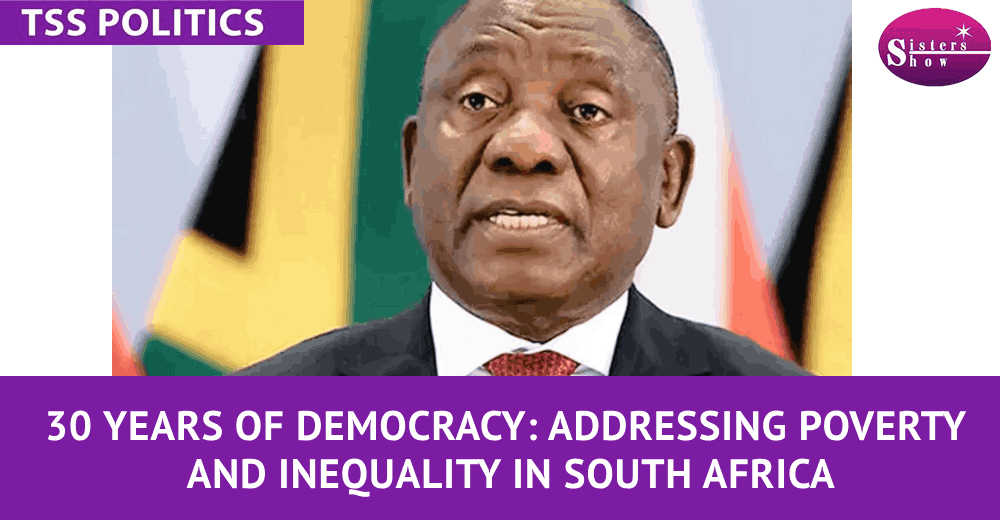
30 YEARS OF DEMOCRACY: ADDRESSING POVERTY AND INEQUALITY IN SOUTH AFRICA
POVERTY IN SOUTH AFRICA: PROGRESS AND CHALLENGES AFTER 30 YEARS OF DEMOCRACY
Even after 30 years of democracy, poverty and inequality remain persistent challenges in South Africa. President Cyril Ramaphosa recently acknowledged this reality during his Annual Address to the National Council of Provinces (NCOP). Despite notable achievements, more transformative actions are needed to improve lives and build an inclusive, prosperous society.
Progress Made Over Three Decades
South Africa has made considerable progress in lifting millions of citizens out of poverty. For instance, the poverty rate fell from 71% in 1993 to 56% in 2010. Social grants, free education, healthcare, and housing have significantly improved the lives of disadvantaged groups, supporting nearly half of all households in the country.
The Current Challenges
Despite these advancements, many families continue to struggle with rising costs for basic necessities such as food, water, electricity, and transportation.
- Cost of Living Crisis: High food inflation since the COVID-19 pandemic has worsened household budgets.
- Food Security: Nearly 25% of households still experience inadequate access to food.
- Municipal Efficiency: Mismanagement of resources in municipalities poses challenges in delivering effective services.
Government Initiatives and Vision
President Ramaphosa emphasized that tackling poverty requires structural transformation in South Africa’s economy and society. Key measures include:
- Social Support Programs: Expanding social grants to provide sustainable livelihoods for children, the elderly, and individuals with disabilities.
- Reducing the Cost of Living: Exploring the expansion of VAT-free food items to include more essential products.
- Food Security Improvements: Strengthening agricultural production to ensure all households have access to nutritious food.
- Economic Transformation: Building an inclusive economy that fosters job creation and reduces reliance on social grants.
Overcoming Global and Local Challenges
Ramaphosa also highlighted challenges such as global financial crises, climate change, and geopolitical issues. Despite these hurdles, he reiterated the government’s commitment to sustainable development and improving quality of life.
Conclusion
The journey toward eradicating poverty and inequality in South Africa requires persistent effort, collaboration, and innovative approaches. President Ramaphosa’s vision underlines the importance of social transformation and economic inclusion in building a sustainable future for all citizens.
Don’t miss out on the latest updates. Stay updated with Politics news with The Sisters Show. Get all the details and never miss a beat!
Read More:- Donald Trump Nominates Scott Turner to Lead Housing and Urban Development Department




